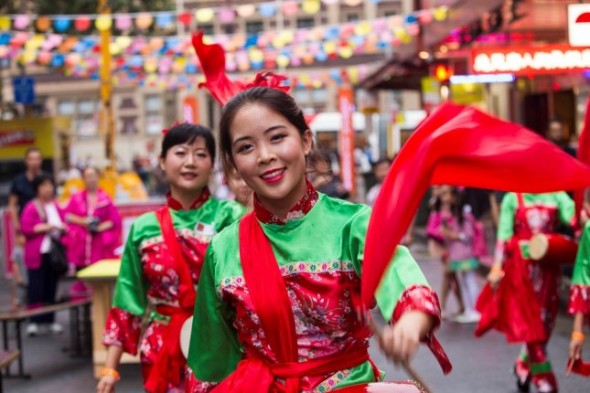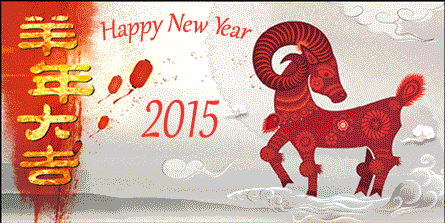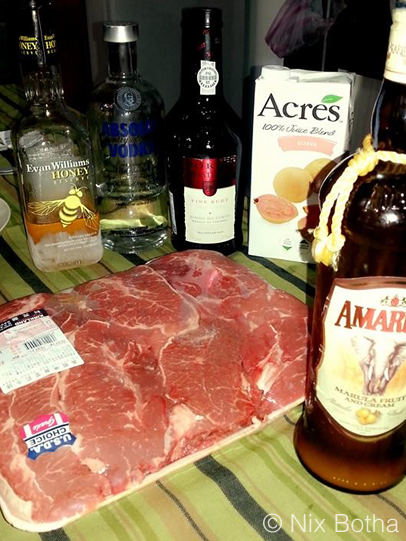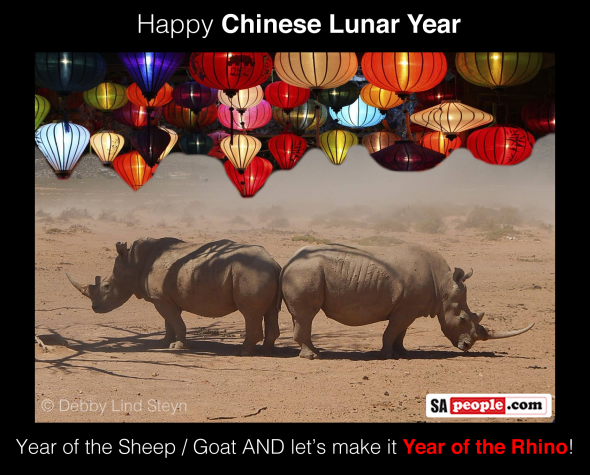
20 Fun Facts about the Chinese New Year
As South Africa’s President Jacob Zuma sends warm New Year wishes to the Chinese community in South Africa and around the world, here are some facts about this event and the Year of the Sheep/Goat (see Fact #2)! The South African President said the Chinese Year of the Sheep is a “symbol of peace, harmonious […]

As South Africa’s President Jacob Zuma sends warm New Year wishes to the Chinese community in South Africa and around the world, here are some facts about this event and the Year of the Sheep/Goat (see Fact #2)!

The South African President said the Chinese Year of the Sheep is a “symbol of peace, harmonious co-existence and tranquility, and also symbolizes a period of prosperity” and a time “to nurture, heal and grow.” With regards to prosperity, he said that “relations between South Africa and China grow annually in leaps and bounds and we are extraordinarily proud of the warmth of our relations with China, contributing in a significant and powerful way to our two economies to the benefit of both our peoples.”
20 Facts You May Not Have Known about the Chinese New Year:

- The Chinese don’t call it Chinese New Year. They call it Spring Festival or Lunar New Year (because its dates depend on the moon).
- Some call it Year of the Sheep, some Year of the Goat. That’s because the Chinese character – yang – can be translated as sheep or ram. In general the people in China refer to it as Sheep while those in Vietnam call it the Year of the Goat.
- Those born under the sign of the Sheep are (supposedly) gentle, polite and kind-hearted.
- It’s not just a one-night thing. The festivities actually last 15-days, the longest most important holiday in the Chinese calendar.
- Almost one-sixth of the world’s population across the globe are celebrating this event today…including South Africans in Taiwan who sent in this photo. (Taiwan, Singapore and Malaysia all have significant Chinese populations.)

Nix Botha – “Happy Chinese New Year, From Taiwan.” - The last day of the celebrations is called Chinese Lantern Day.
- It’s not just a Chinese celebration. People in Korea, Japan and Vietnam also observe the Lunar New Year
- The year 2015 is the 4712th Chinese year.
- Previous Sheep Years are: 1919, 1931, 1943, 1967, 1979, 1991 or 2003.
- The Chinese zodiac consists of 12 years. This is the eighth year.
- The lucky numbers for this year are three, four and nine. The lucky flowers are carnation, primrose and Alice flower.
- According to tradition, you should totally spring-clean your house and pay off all your debts before New Year.
- Lunar New Year marks the “largest annual mass migration on earth” – larger than the wildebeest migration in the Serengeti. Almost 3-billion trips (known as ‘chun yun’) are made by students and workers in cities to spend the festivities reunited with their families in the country!
- Returning home can be so stressful for single girls, with older relatives putting pressure on them to find a man, that renting a boyfriend has become quite a popular business around this time!
- Food plays a central role. The traditional family dinner includes un-cut noodles (for longevity) and fish and chicken (for prosperity). Sweet dishes are also popular, and in Korea they enjoy ‘duk gook’ which is a soup of thinly-sliced rice cakes. Conveniently in Korea everyone turns a year older at the start of each New Year (rather than on their birthday), so adults tend to tell children they can’t get older unless they eat some ‘duk gook’.
- South African wine – Goats will Roam – is set to be very popular this year!
- One should avoid saying words like ‘broken’ or ‘illness’ during the Lunar New Year as this could bring bad luck. Eating a full barrel of rice is meant to ensure prosperity for the coming year!
- The New Year greeting is pronounced “Gong Xi Fa Cai” in Mandarin and “Gong Hey Fat Choy” in Cantonese, although both are written the same way.
- Apparently anyone born in a goat year should avoid “inauspicious coffee or gold”. (You’ve been warned!)
- We wish it was the Year of the Rhino…and this is a quick plea for any South African living in an Asian country to please inform the locals of the facts – that rhino horn does not have medicinal value and that rhinos are actually killed and mutilated for their horns…and now face extinction within our lifetime…

